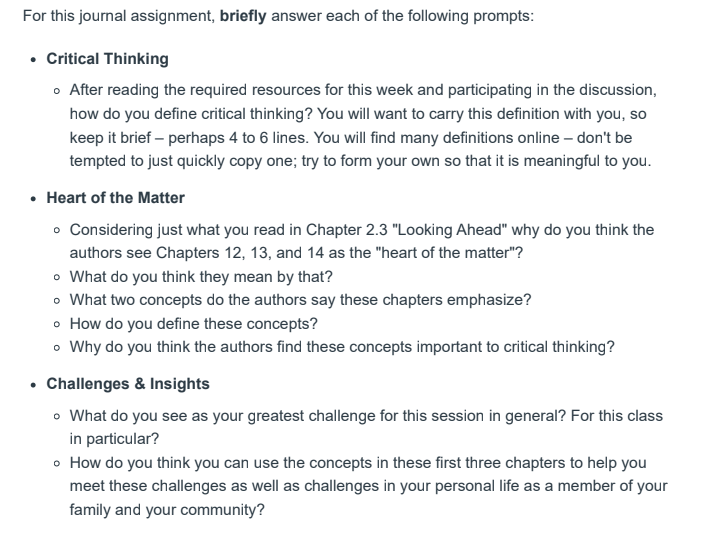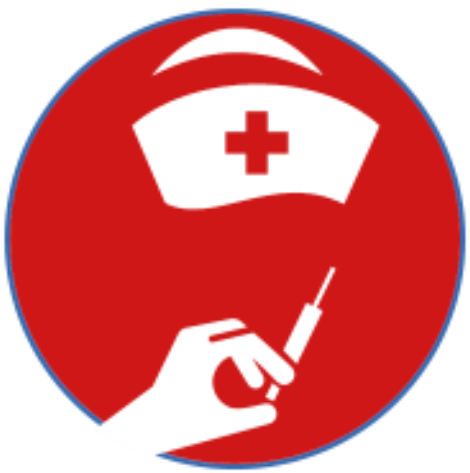
Introduction
The journal is an essential assignment that is meant to sum up the conclusions you come to after having reflected on the readings in the text, the online lecture, discussion posts, including your own and those of your peers, and any outside material you consult. You will probably find that you do as much or more thinking than you do writing in responding to the journal prompts – and that is perfectly okay. In general, the weekly journal should meet the noted length requirement – not including the space needed for the prompts.
You may feel the need to write out longer reflections – and that is also okay. If you do feel the need for longer reflections, then, once you have written them out, try to edit them, reducing them to their essence.
Part of this course is process – training ourselves to think critically. Part of it is learning to understand how we think and why we think or believe what we think or believe. While the journal prompts will occasionally address the process, it will more often ask you to reflect on the hows and whys of what you know and believe – or what you think you know and believe.
Instructions
For this journal assignment, briefly answer each of the following prompts:
- Critical Thinking
- After reading the required resources for this week and participating in the discussion, how do you define critical thinking? You will want to carry this definition with you, so keep it brief – perhaps 4 to 6 lines. You will find many definitions online – don’t be tempted to just quickly copy one; try to form your own so that it is meaningful to you.
- Heart of the Matter
- Considering just what is in this weeks’ readings, why do you think the authors (looking forward in the text) see Chapters 12, 13, and 14 as the “heart of the matter”?
- What do you think they mean by that?
- What two concepts do the authors say these chapters emphasize?
- How do you define these concepts?
- Why do you think the authors find these concepts important to critical thinking?
- Challenges & Insights
- What do you see as your greatest challenge for this session in general? For this class in particular?
- How do you think you can use the concepts in these first three chapters to help you meet these challenges as well as challenges in your personal life as a member of your family and your community?
ANSWER:
Critical Thinking
The simplest definition of critical thinking is good thinking. However, it is much more than just making the right decisions. It is a systematic process that requires critical skills, which is what sets it apart from intelligence. While intelligence allows us to attain and retain knowledge, critical thinking is the skill we require to implement this knowledge successfully. In doing so, we analyze the information we have, assess the presenting scenario, project potential outcomes, and make a judgment on the best course of action. I described it as good thinking as it helps us reach good decisions on important personal, work, and professional issues, among others.
Heart of the Matter
Indeed, chapters 12, all through to 14, are the heart of the course text. By referring to these chapters as “heart of the matter,” the authors imply that they are the most fundamental chapters in the book as it relates to critical thinking. That is, they hold the most essential information on critical thinking. From the looks of it, the previous book chapters comprise an assessment of the configurations and skills of the critical thinking process. On the other hand, the chapters dubbed “comparative reasoning,” “ideological reasoning,” and “empirical reasoning” are important and different as they put all knowledge contained in the previous chapters into practice. They are the heart of the matter since critical thinking is a practical skill, and they teach just how to practice the skill. CONTINUE READING…
